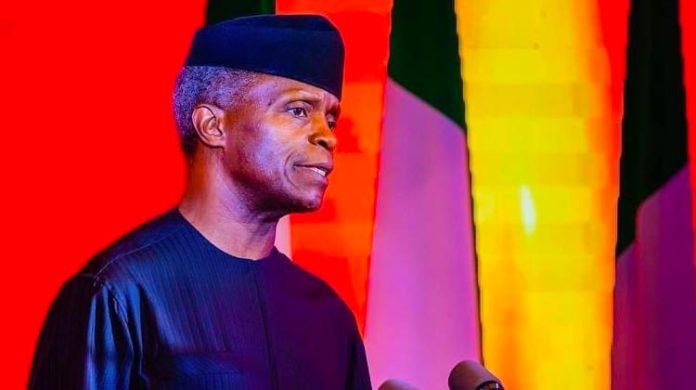…projects 163 million new jobs, 7% real GDP growth
…as Osinbajo inaugurates Steering Committee on NDP 2021 – 2025
The National Economic Council on Thursday, in Abuja, endorsed the Nigeria Agenda 2050; a plan aimed at increasing real Gross Domestic Product growth by seven per cent, creating 165 million new jobs and reducing the number of people living in poverty to 2.1 million in 2050, from the 83 million people estimated in 2020.
This comes 29 months after the President, Major General Muhammadu Buhari (retd.), launched the National Steering Committee for the preparation of the Medium-Term National Development Plan 2021 – 2025 and Nigeria Agenda 2050.
Its overarching goal is to take Nigeria through to an Upper Middle-Income Country and subsequently to the status of a High-Income country.
The council approved the agenda after its emergency session and first meeting in 2023 presided over by Vice President Yemi Osinbajo, SAN, after it was presented by the Ministry of Finance, Budget and National Planning to State Governors and other members of the NEC.
The Senior Special Assistant to the Vice President on Media and Publicity, Laolu Akande, revealed this in a statement signed late Tuesda, titled ‘National Economic Council endorses Nigeria Agenda 2050’.
Speaking after the presentation and discussion by Council members, Osinbajo observed that the plan “captures a lot of the expectations for Nigeria in the future and hopefully implementation which is key if effectively done.”
The Minister of State for Budget and National Planning, Clem Agba, said the Federal Government had taken unprecedented steps in ensuring the operationalisation of the plan, especially with the inauguration of the Steering Committee of the National Development Plan by the VP.
Earlier on Tuesday, Osinbajo had unveiled the Steering Committee of the National Development Plan 2021 – 2025.
According to him, the Steering Committee will “provide the necessary policy guidance and leadership for effective and successful implementation of the plan.”
The launching comes 14 months after the President unveiled the National Development Plan on December 22, 2021.
About two years earlier, on September 9, 2020, Buhari unveiled the National Steering Committee for the preparation of the Medium-Term National Development Plan 2021 – 2025 and Nigeria Agenda 2050.
The Nigeria Agenda 2050 is formulated against the backdrop of several subsisting development challenges in the country.
They include low, fragile and non-inclusive economic growth; high population growth rate, pervasive insecurity, limited diversification, macroeconomic and social instability, low productivity and high import dependence.
The plan targets Nigeria’s long-term ambition to improve its per capita Gross Domestic Product from about US$2,084.05 in 2020 to US$6,223.23 in 2030 and US$33,328.02 in 2050, with rapid and sustained economic growth, job creation and poverty reduction.
It also “projects annual average real GDP growth of 7.0 per cent.”
“The real growth rate of the GDP of the first medium-term NDP 2021-2025 on average will be 4.65 per cent and this will increase to 8.01 per cent in the second NDP; subsequently, it is expected to increase to 8.43 per cent in the third.
“Consequently, the number of full time jobs created will be roughly 165 million during the Agenda period to spur poverty reduction.
“The number of people in poverty will decline from the roughly 83 million in 2020 to about 47.8 million in 2025 and to 2.1 million by 2050, thus taking a significant segment of the population out of poverty,” the statement read.
Share your story or advertise with us: Whatsapp: +2347068606071 Email: info@newspotng.com








